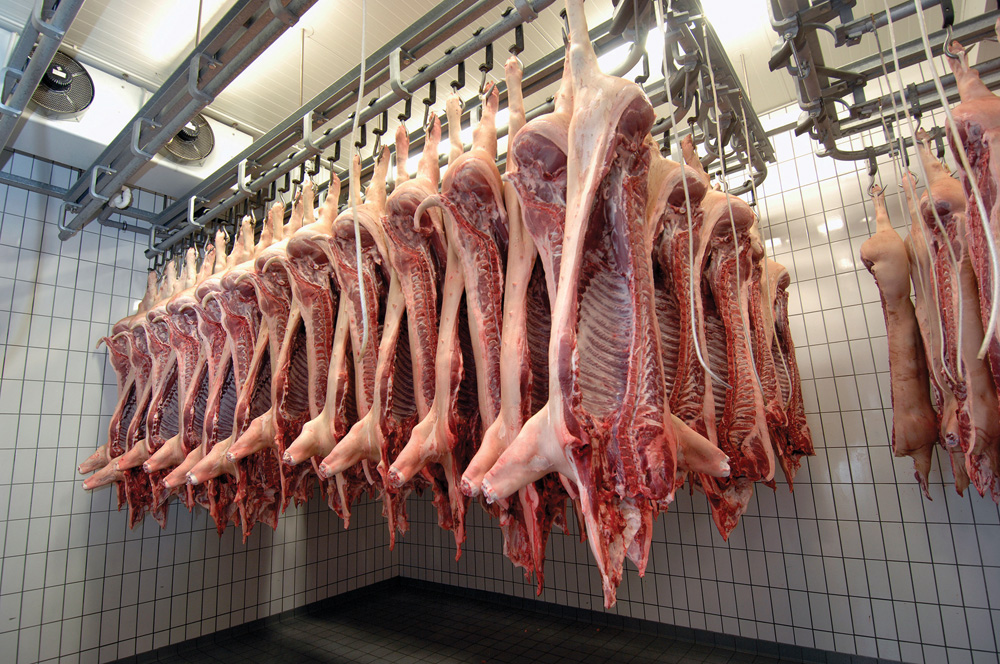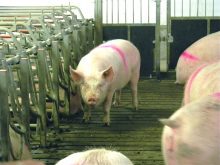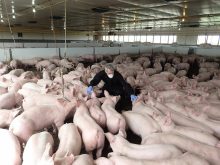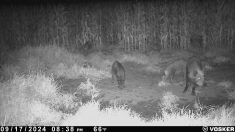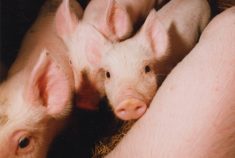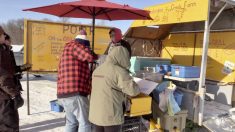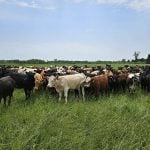Every effort will be made to find space for hogs if Brandon’s Maple Leaf Foods plant shuts down, says the Manitoba Pork Council.
As of August 13, the facility remained open as confirmed cases of COVID-19 among workers climbed over two dozen and many more staff were in self-isolation. About 2,000 people work at the plant, which processes up to 15,000 hogs per day.
The plant passed inspections from the province and the Canadian Food Inspection Agency, confirming “the steps we are taking were appropriate,” according to a letter from Maple Leaf to its workers’ union on August 10.
Read Also
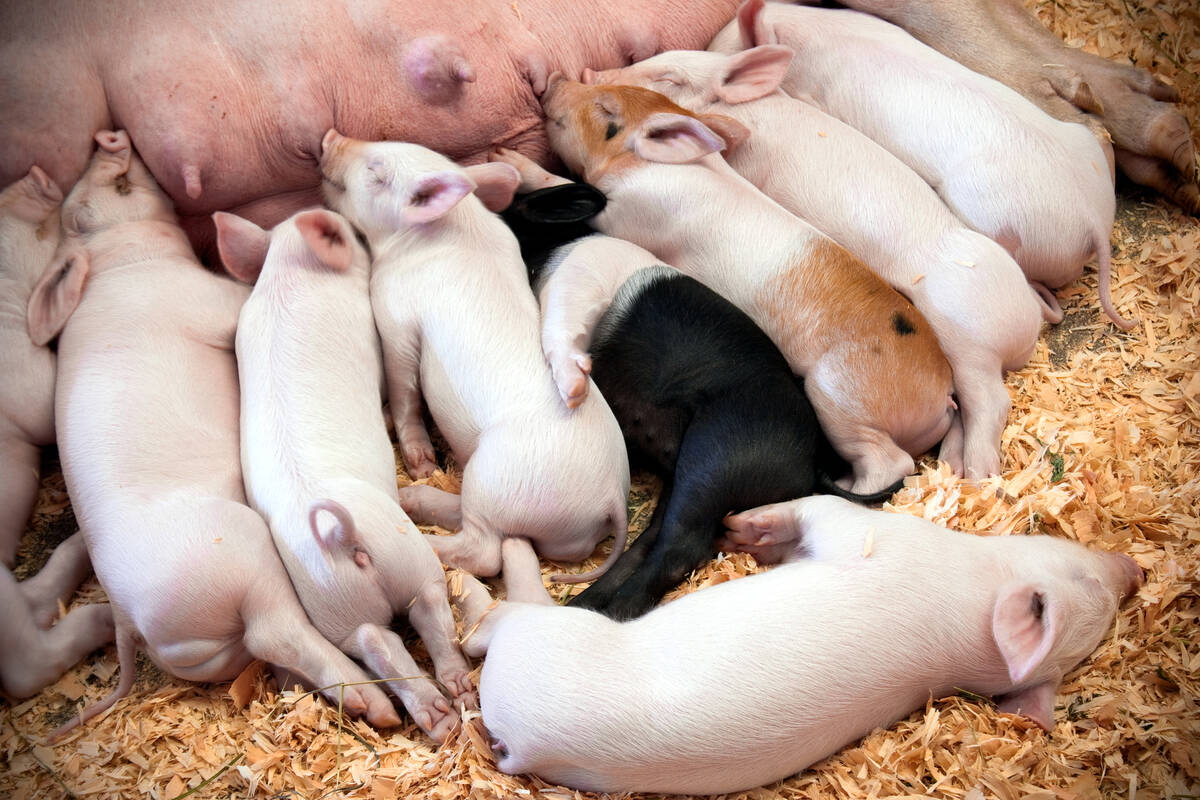
First-time pig mothers may need more lysine
Lysine feed recommendations may fall short for gilt pregnancies when it comes to making sure the mother pig can produce as much milk for her piglets as possible
The letter added the inspections found no evidence of workplace transmission of the novel coronavirus and “saw no reason to stop operating the plant.”
UFCW Local 832, which represents workers at the plant, continued to call for the plant to close to get the situation under control.
“We’re all very apprehensive,” said George Matheson, who is chair of Manitoba Pork and a hog producer near Stonewall.
Manitoba Pork was working closely with processors, provincial authorities and other stakeholders to have a contingency plan in place, said general manager Andrew Dickson. In a statement August 10, he told the Co-operator key stakeholders had agreed on objectives for a variety of shutdown scenarios.
“Actual detailed plans would be drawn up as events unfold,” he said.
What that plan is depends largely on how long the plant was closed, said Dickson. If the plant shuts down more than four or five days, capacity would have to be found elsewhere on the Prairies.
Federally inspected options are HyLife in Neepawa, Olymel in Red Deer, Alberta, and the Donald’s Fine Foods plant in Moose Jaw, Saskatchewan, said Matheson. Plants in southern Ontario, for instance, are too far away.
“Of course there’s some added transport when you get into Saskatchewan, Alberta but it is an option,” Matheson said.
“We don’t have enough pigs for the packers that we have here,” Alberta Pork executive director Darcy Fitzgerald told the Alberta Farmer Express earlier this month, adding there was no shortage of demand for Alberta hogs.
However, market analyst Kevin Grier was skeptical those plants would find space for additional pigs.
HyLife is “pretty well full up,” he said.
He added that Olymel’s plant in Red Deer is running just one shift, and while it may theoretically be able to ramp up to two shifts, it doesn’t seem practical for what might be a short shutdown in Manitoba.
Pork plants in Minnesota and South Dakota are unlikely to take excess pigs as a million or more hogs are backed up in the United States after plant shutdowns there.
“It’s a backlog that would happen (in Manitoba), and it’s a serious problem,” said Grier.
To Matheson’s knowledge, no Manitoba plant has been forced to close for anything other than brief mechanical issues, he said.
Prairie plants kept humming as Olymel’s plant in Yamachiche, Quebec closed in late March and remained idle for two weeks after nine employees tested positive for COVID-19, according to a report in the Montreal Gazette.
The Conestoga plant in Breslau, Ontario closed for about a week in late April and early May. On May 8, 44 workers had tested positive for the coronavirus, according to a report from Kitchener Today.
Over the border Smithfield Foods closed its massive plant in Sioux Falls, South Dakota after more than 80 workers tested positive for the virus in early April. The plant was soon the nation’s largest single-source coronavirus hot spot, the New York Times reported.
Later that month, JBS would close its processing plant in Worthington, Minnesota for a 15-day hiatus. The plant kills and processes 20,000 hogs a day, according to a report from Minnesota Public Radio.
Numerous other processing plants also closed throughout the U.S.
While plants stayed open in Manitoba, hog prices dropped. On March 27 the province reported a hog price average of $193.95/100 kg (all weights) and $180.61/100 kg (Index 100). The price hovered a few dollars lower on April 3.
By April 10 the price was $165.72/100 kg (all weights) and $154.69/100 kg (Index 100), and on April 17 it had dropped to $150.46/100 kg (all weights) and $140.36 (Index 100). The next week, prices were just a few dollars higher. They began to climb again in early May.
A report in The Star quoted Canadian Pork Council chair Rick Bergmann, saying the pork sector was “in a free fall.”
Bergmann went on to say farmers in Manitoba were aborting sows and euthanizing piglets because of processing backlogs.
Backlogs in Canada have since been cleaned up, Grier said.
“We’re pushing hard to keep the plant running,” Dickson told Portage Online on August 11. “There’s only limited capacity here on the Prairies and we can’t be shipping down to the United States.
“We need that plant to keep running. It’s absolutely vital to producers on the farm,” he added.






